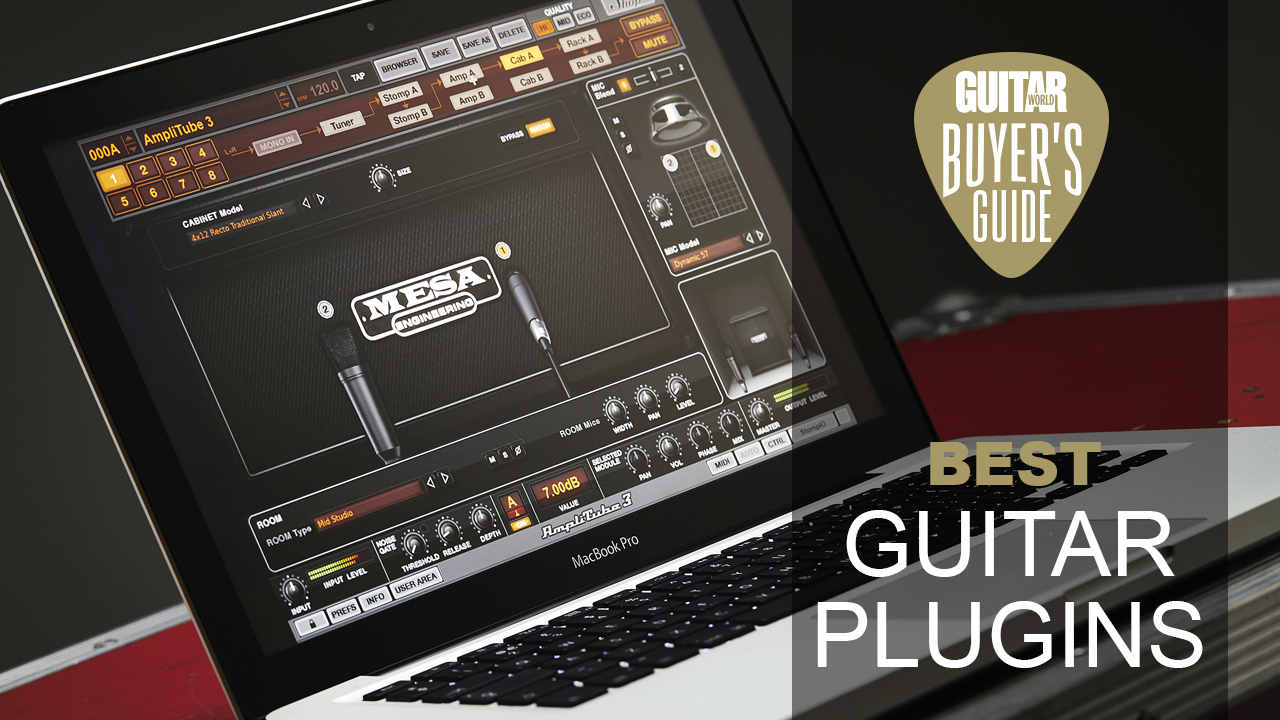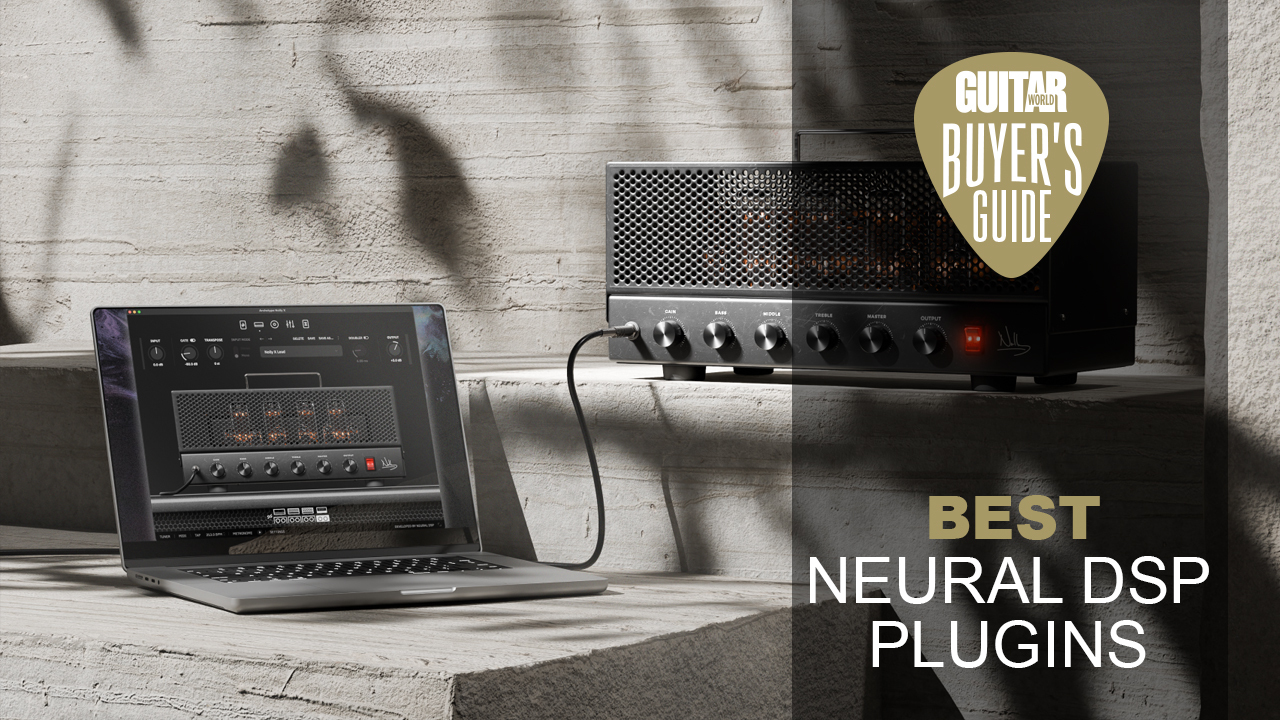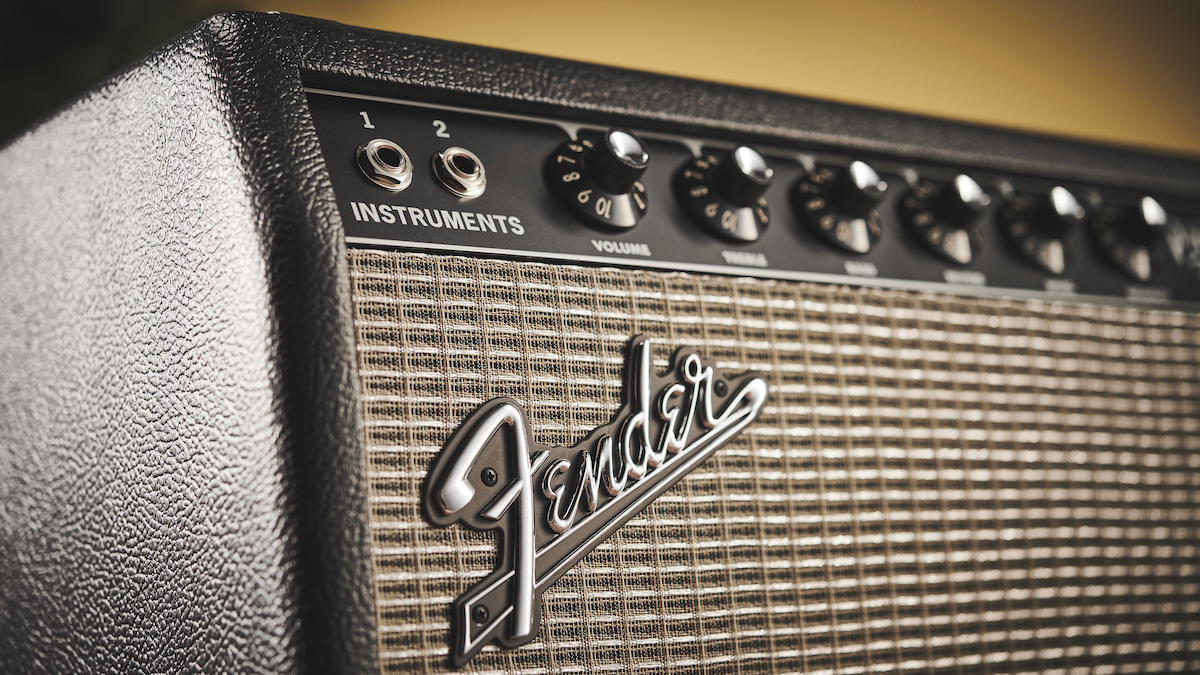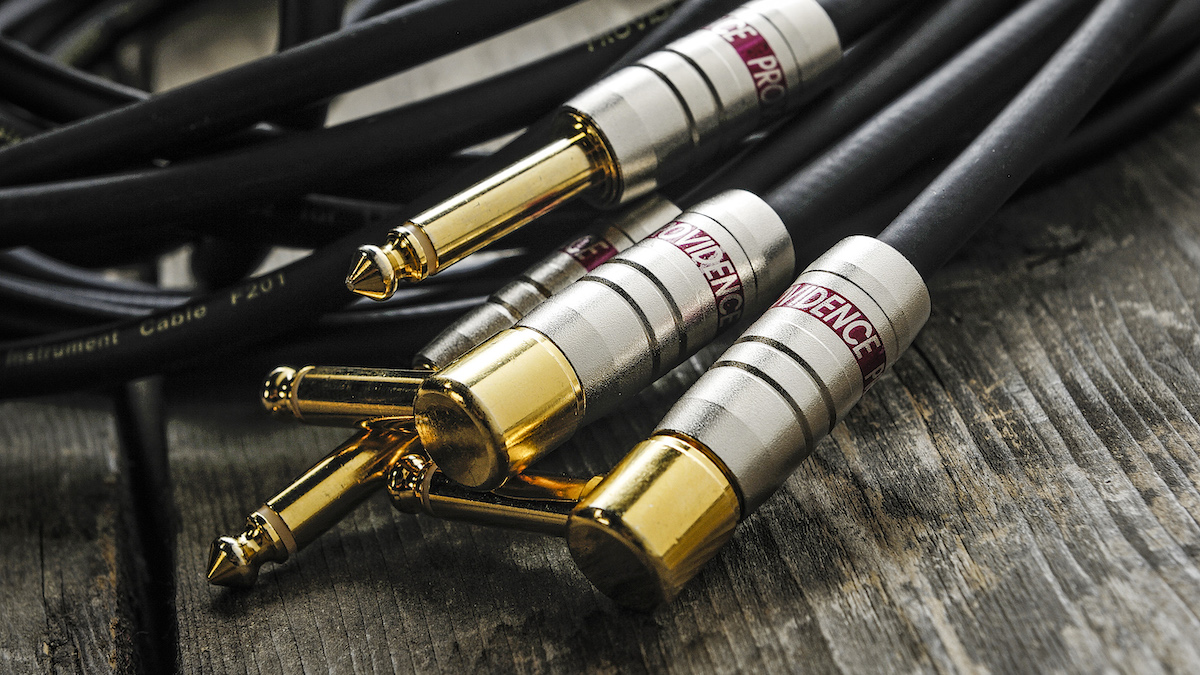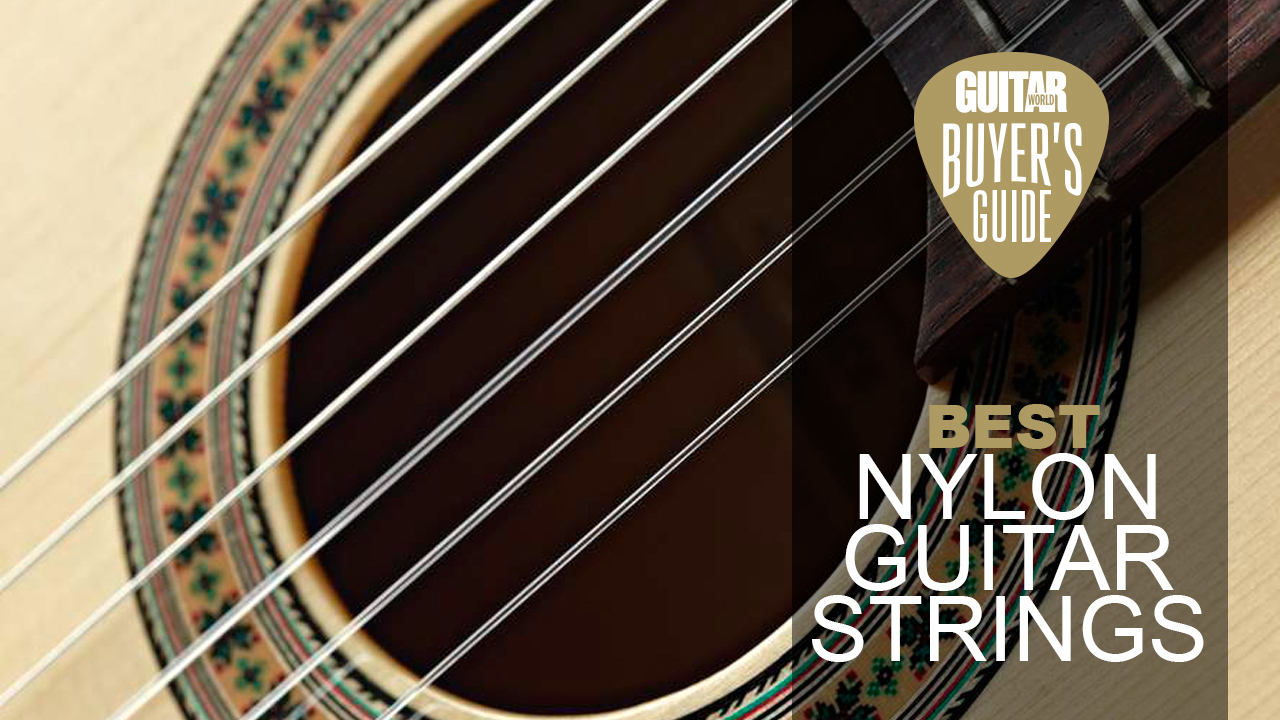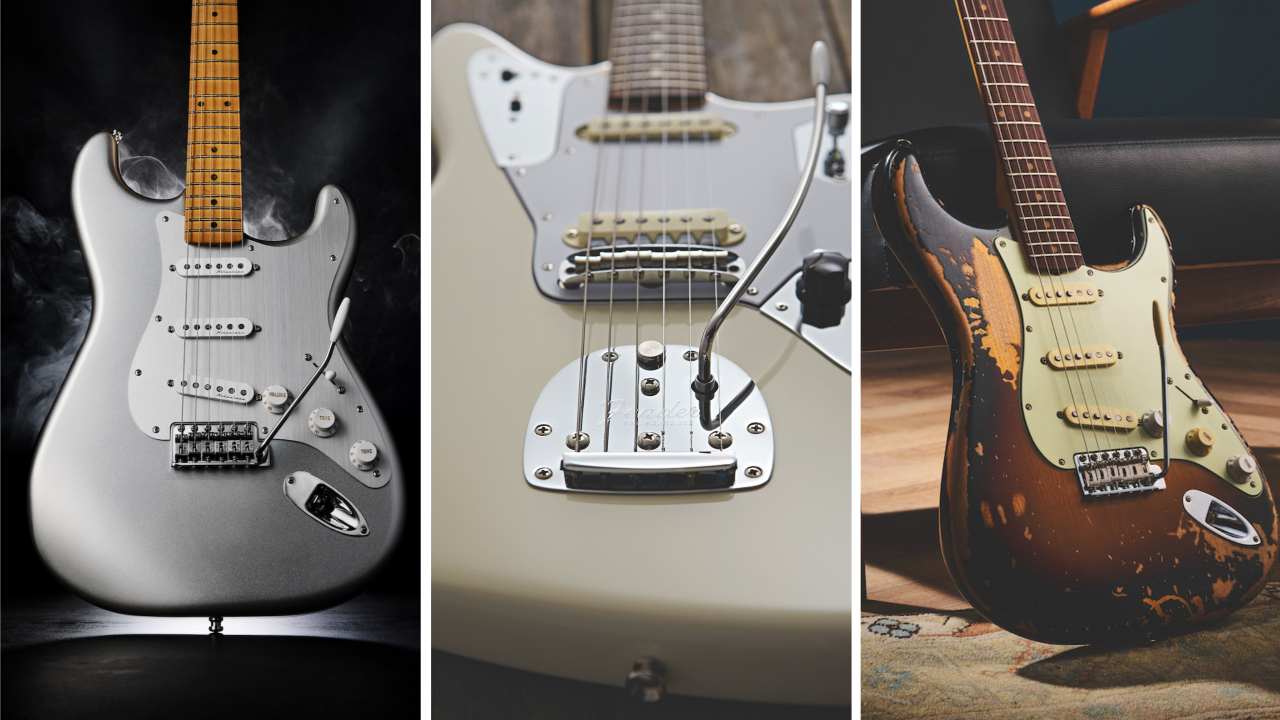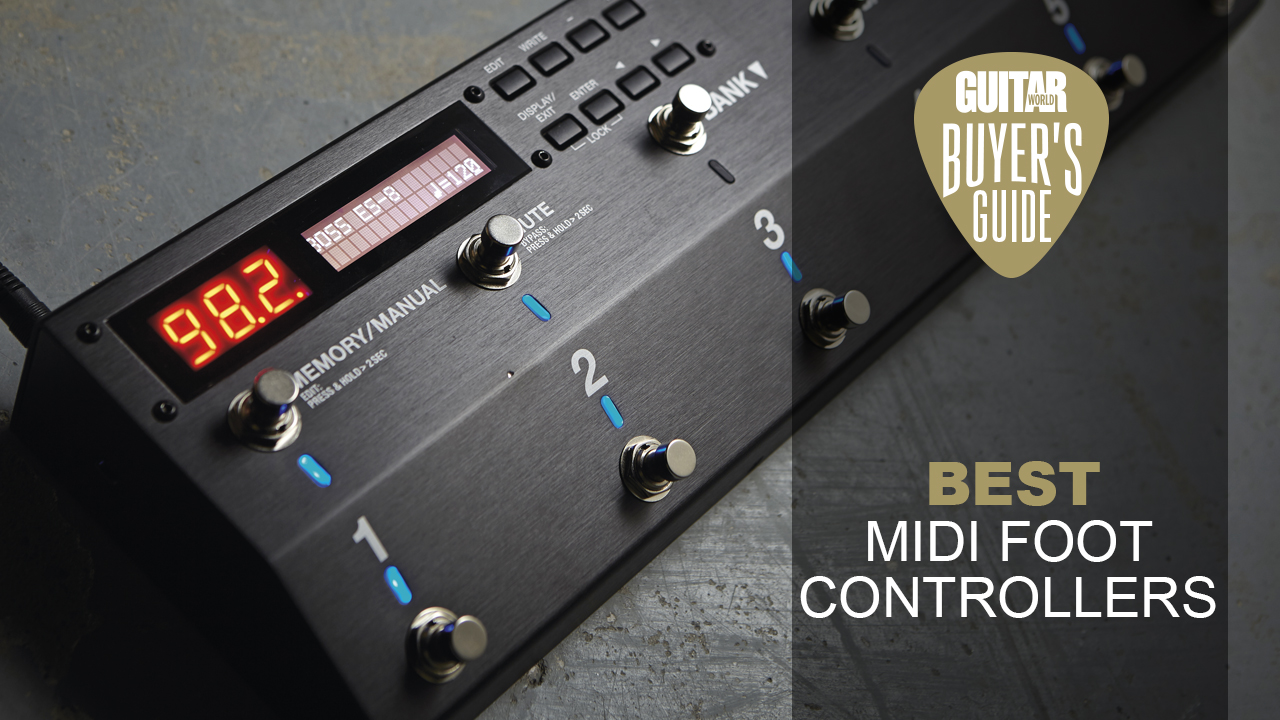Best Tube Screamer clones 2025: top alternatives for all budgets
Ibanez Tube Screamer not doing it for you? Here’s our expert pick of killer Tube Screamer alternatives from EarthQuaker Devices, Mooer, JHS and more
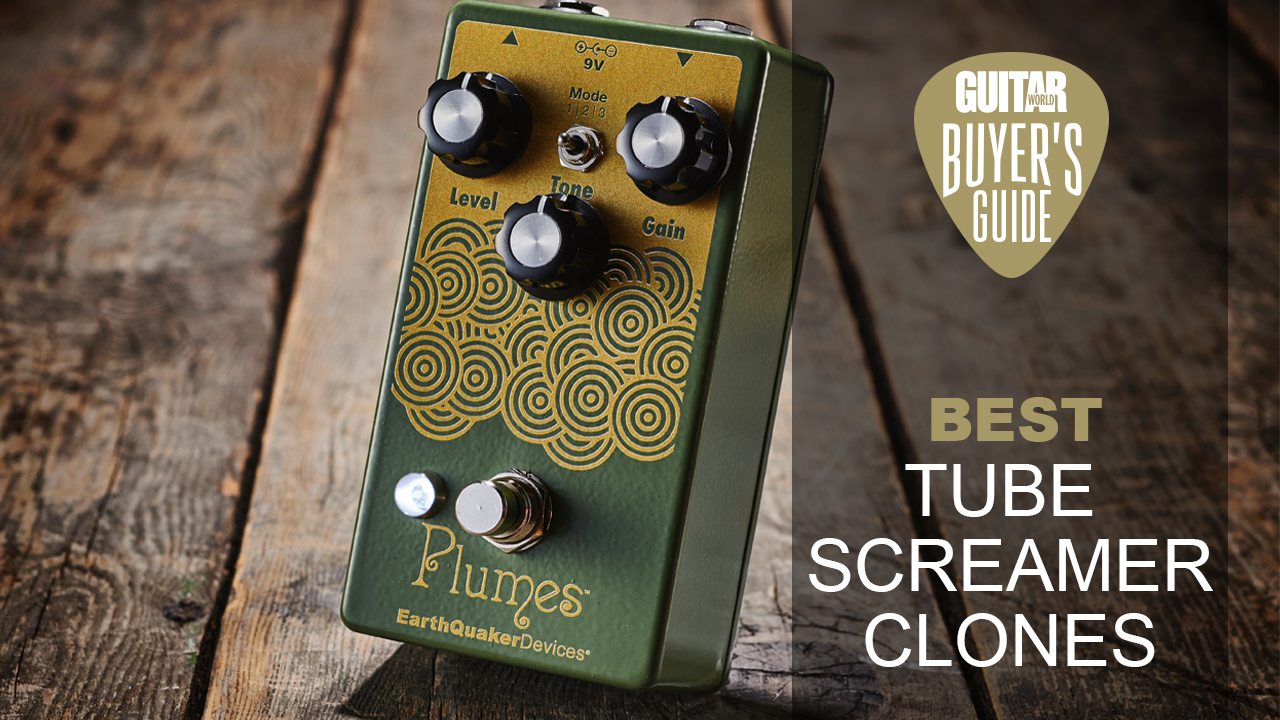
The BOSS OD-1 might have coined the term "Over Drive", but the Tube Screamer made it a classic effect. From blues to tech metal, there's no genre untouched by the original lean, green machine. In addition, a whole family tree of pedals descended from it make up a huge chunk of the pedal market.
Still, there's a lot of players that hunger for the original, and companies are happy to oblige. Tube Screamer can mean a number of different things, as even the original has changed many times since its introduction in 1979. In this guide, we're going to cover some of the best Tube Screamer clones, reproductions and adaptations on the market.
Now, saying something is the ‘best’ is obviously subjective – but the eight pedals in this guide are the ones that really ‘spoke’ to us. Whether it was amazing value for money, impressive durability, great looks or ridiculous tone, the following pedals stood out as the very best of the bunch. We’ve included some in-depth buying advice at the end of this guide too, so if you’d like to read more about the best Tube Screamer clones – and the famous pedal they're based on – then that’s the place to go. If you’d rather go straight to the products, then keep scrolling.
Best Tube Screamer clones: Our top picks
Although all of these pedals are fantastic for their own reasons, our number one best Tube Screamer clone pick has to be the JHS Bonsai. At $249 it’s one of the more expensive options here, when you consider just what it can do, it’s actually quite a reasonable price tag for a 9-in-1 Tube Screamer clone. The sheer versatility of this pedal, along with some of its replications of rare pedals and mods, makes this our top choice.
If you’re on a budget, our pick would be the EarthQuaker Devices Plumes. While there are even cheaper pedals in this guide for those who really want to cut costs, we feel that the Plumes offers the best compromise between tone and budget. That being said, there’s no real compromise – the Plumes is a versatile tonal monster, with a fair range of tweakable parameters to help you sculpt your favorite tones.
Best Tube Screamer clones: Product guide
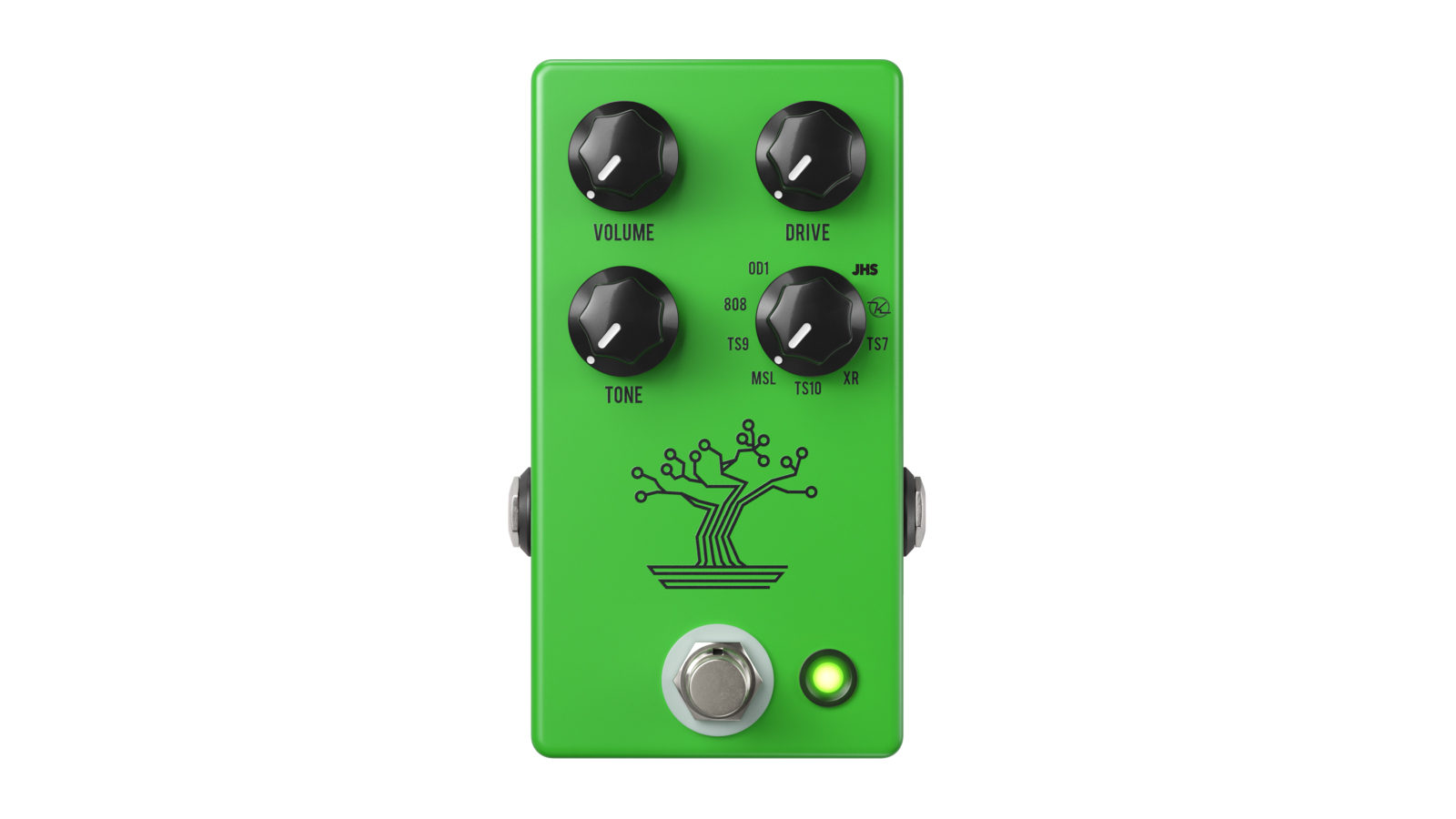
1. JHS Bonsai
Our expert review:
Specifications
Reasons to buy
Reasons to avoid
JHS creates a vast range of single-mode overdrive and distortion pedals which have nearly all become fan favorites. For this reason we’d have expected the Bonsai to take the form of nine separate TS-inspired stompboxes – but this love letter to the Tube Screamer, in its 9-in-1 format, is guaranteed to go down as one of the best JHS pedals – and one of the best TS clones – of all time.
The main volume, drive and tone controls – while fairly self-explanatory – offer the user a pretty vast range of tones to work with. Finding your favorite tone on the Bonsai is surprisingly difficult, which is mostly down to the abundance of choice, but it’s a thoroughly enjoyable experience altogether. Imagine having a pedalboard full of TS-style pedals – including some of the most rare, sought after options on the market. It’s a real treat.
The nine TS modes on offer (OD-1, TS-808, TS-9, MSL, TS-10, EXAR OD-1, TS-7, Keeley Mod Plus & JHS Strong Mod) are replications of iconic pedals released between 1977 and 2008 – many of which are still available to buy as standalone pedals today. JHS has gone to the ends of the musical earth to authentically recreate these tones with hardware components, meaning that when you turn the rotary selector, you’re actually activating the specific parts necessary to recreate your favorite drive tones. No emulation here!
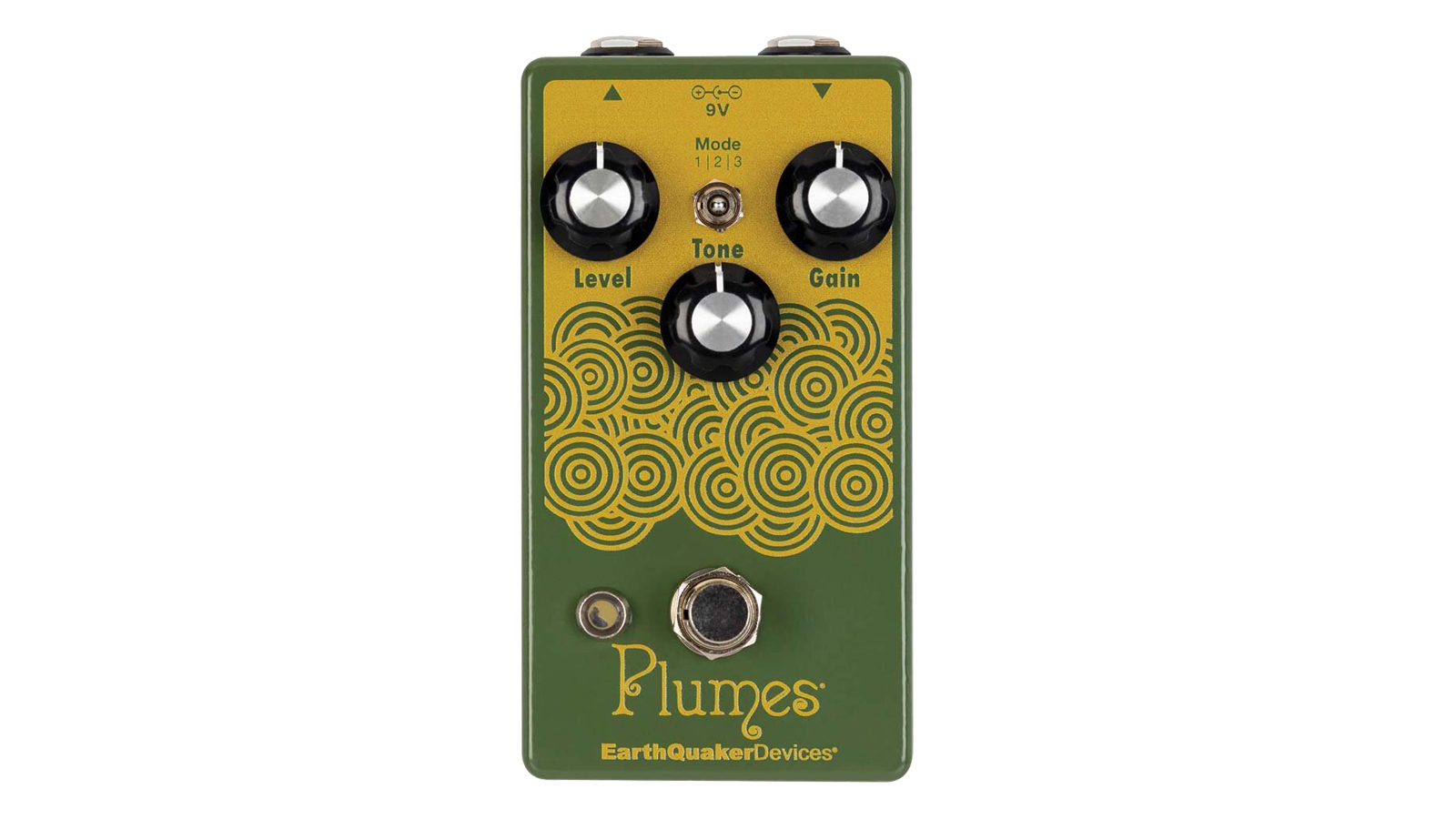
2. EarthQuaker Devices Plumes
Our expert review:
Specifications
Reasons to buy
Reasons to avoid
EarthQuaker Devices has a reputation for making some pretty wacky stuff, so their introduction of a fairly sensible-seeming take on the famous green pedal was a departure from the EarthQuaker norm. Thankfully, this pedal is also mental – and well worth a try.
For under a hundred bucks, this pedal can emit some pretty incredible sounds. The level, tone and gain controls provide a pretty impressive range of tonal variation, making finding the perfect tone fairly straightforward. The ‘mode’ toggle switch is the Plumes’ main point of interest, however – and the difference each mode makes to your tone is spectacular. Mode 1 provides symmetrical LED clipping, adding more crunch and compression to your tone in a Marshall-esque manner. Mode 2 is a clean boost, and works well if you’d rather preserve your amp tone when in tonal nirvana. Mode 3 is the more ‘screamer’ option; an asymmetrical silicon diode arrangement but with a little more clarity for that ‘transparent’ drive tone we all talk about.
For the money, we’re thoroughly impressed with the Plumes. Through a mid-scooped amp it really comes into its own, and if you’re in the market for a TS clone that can do a little more then this should be on your shortlist.
Read the full EarthQuaker Devices Plumes review
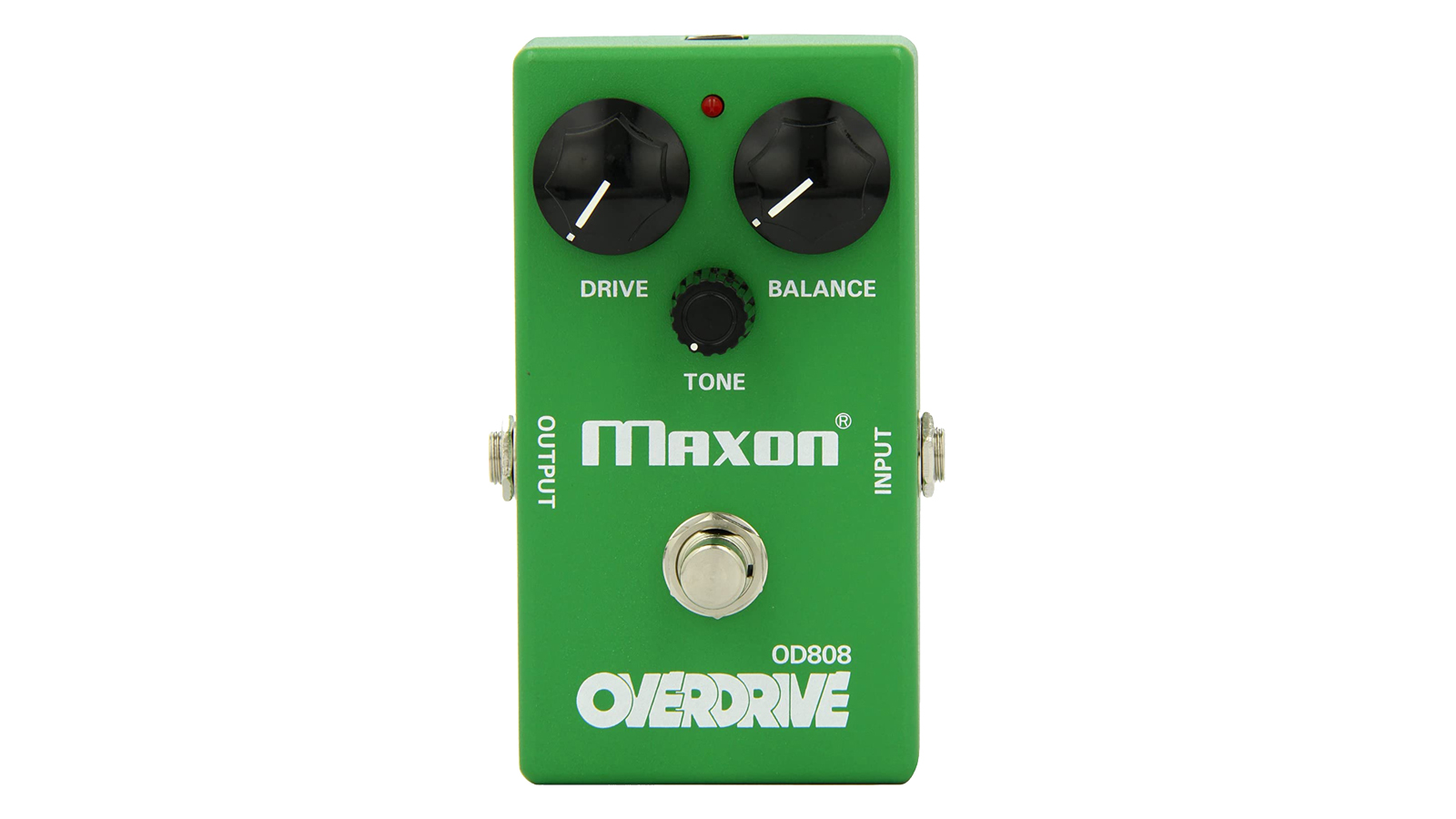
3. Maxon OD808
Our expert review:
Specifications
Reasons to buy
Reasons to avoid
So the Maxon OD808 is not really a clone. Ibanez's parent company Nisshin was the brand to develop the original Tube Screamer circuit and pedal in the early 1970’s, producing Ibanez branded pedals. Nisshin also released their own line of effects under the Maxon brand. The OD808 and the TS808 are, for that reason, identical pedals – so if you’d rather avoid having ‘mainstream’ brands on your ‘board, then a Maxon OD808 could be exactly what you need.
The OD808 was the pedal that gave Stevie Ray Vaughan that tone – an impressive feat when you consider just how simple the control layout of this pedal is. Drive, tone and balance dials are all you get on the OD808 – but we’d argue that’s all you need. The OD808 produces an exceptionally warm, organic overdrive sound with stunning mid-presence, and this current version has been tweaked further by Maxon to produce even less background noise.
Other than the reduced background noise however, it’s hard to see where the Maxon OD808 can offer you a different experience to the TS808. If you want something tonally different to the Ibanez model, then you won’t really find it here – but if you’re someone who enjoys having something different on your ‘board to everyone else, then the Maxon could be the one for you.
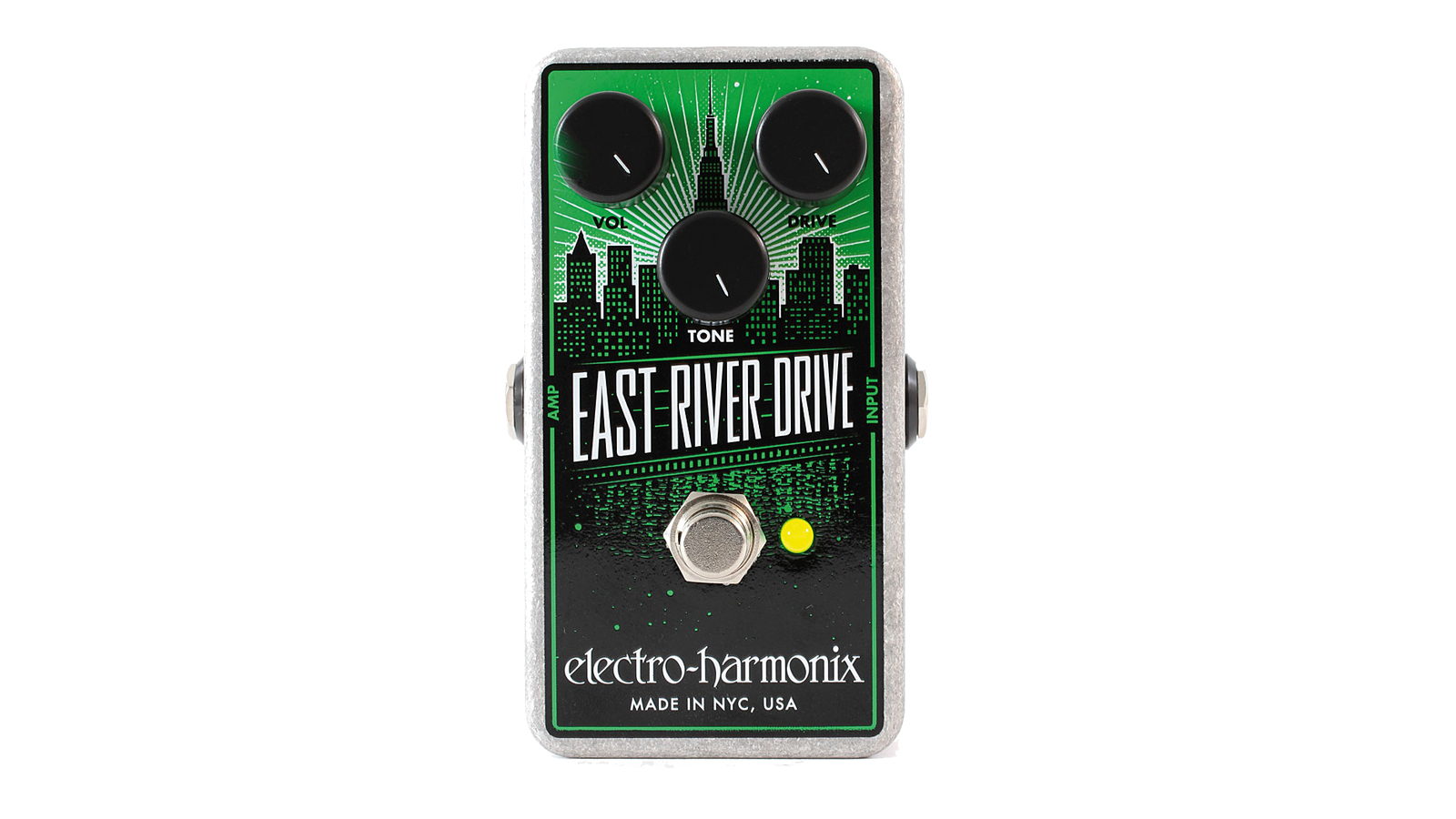
4. Electro-Harmonix East River Drive
Our expert review:
Specifications
Reasons to buy
Reasons to avoid
If you’re after that iconic Tube Screamer sound but struggling to justify the price tag that can come with some TS-style pedals, then the East River Drive by Electro Harmonix could be your new favorite drive pedal.
Like most Tube Screamer clones, the East River Drive is a simple but tonally impressive affair. With volume, tone and drive knobs laid out in a fairly standard fashion aboard the heavy duty metal enclosure, this pedal feels like something which should cost a whole lot more. The possible variation in tone is huge when you take into consideration the fact that you’ve only got three tweakable parameters, and it’s one of the many reasons why we speak of the East River Drive so highly.
This pedal channels its inner TS808 with some real energy, and once you’ve set the gain to sear, you’ll understand why. It’s obviously built with longevity in mind – both with its timeless overdrive tone and hefty metal enclosure, and will endure pretty much any gigging scenario you can throw at it. It’s not quite as high-brow as some of the more expensive options on this list, but if sophisticated overdrive is what you want, then you probably won’t get it from a Tube Screamer.
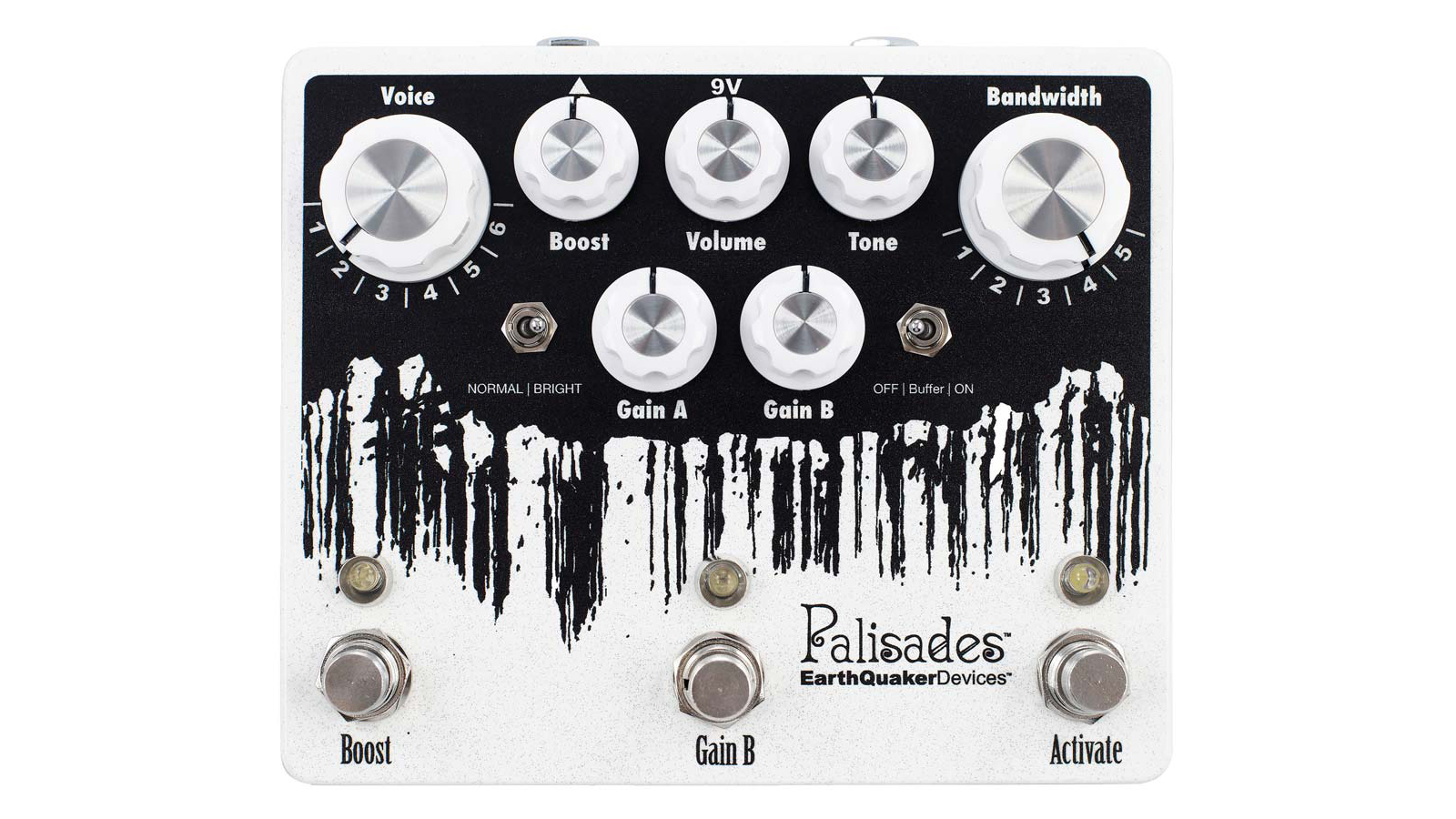
5. Earthquaker Devices Palisades
Our expert review:
Specifications
Reasons to buy
Reasons to avoid
The Palisades is an absolute unit of a Tube Screamer clone. There's a host of options available. Of course, there are gain, level and tone controls, but also a second channel gain control and an output boost. On top of that there's a bright mode, and the option to disable the buffer.
It's in the voicing that the pedal has the most flexibility. Rather than just allow you to select the version of Tube Screamer you want to use, EQD has split down the constituent blocks of the tone. There's a voice control, which essentially changes the clipping diodes, as well as a bandwidth control, which controls the gain and tone. This gives a greater deal of control over the amount of compression and EQ profile, as well as the effect of clipping.
There's a footswitch to activate the pedal, and one to switch to the second gain channel. Finally, there's a third footswitch, allowing you to engage the output boost.
Watch our Earthquaker Devices Palisades demo video
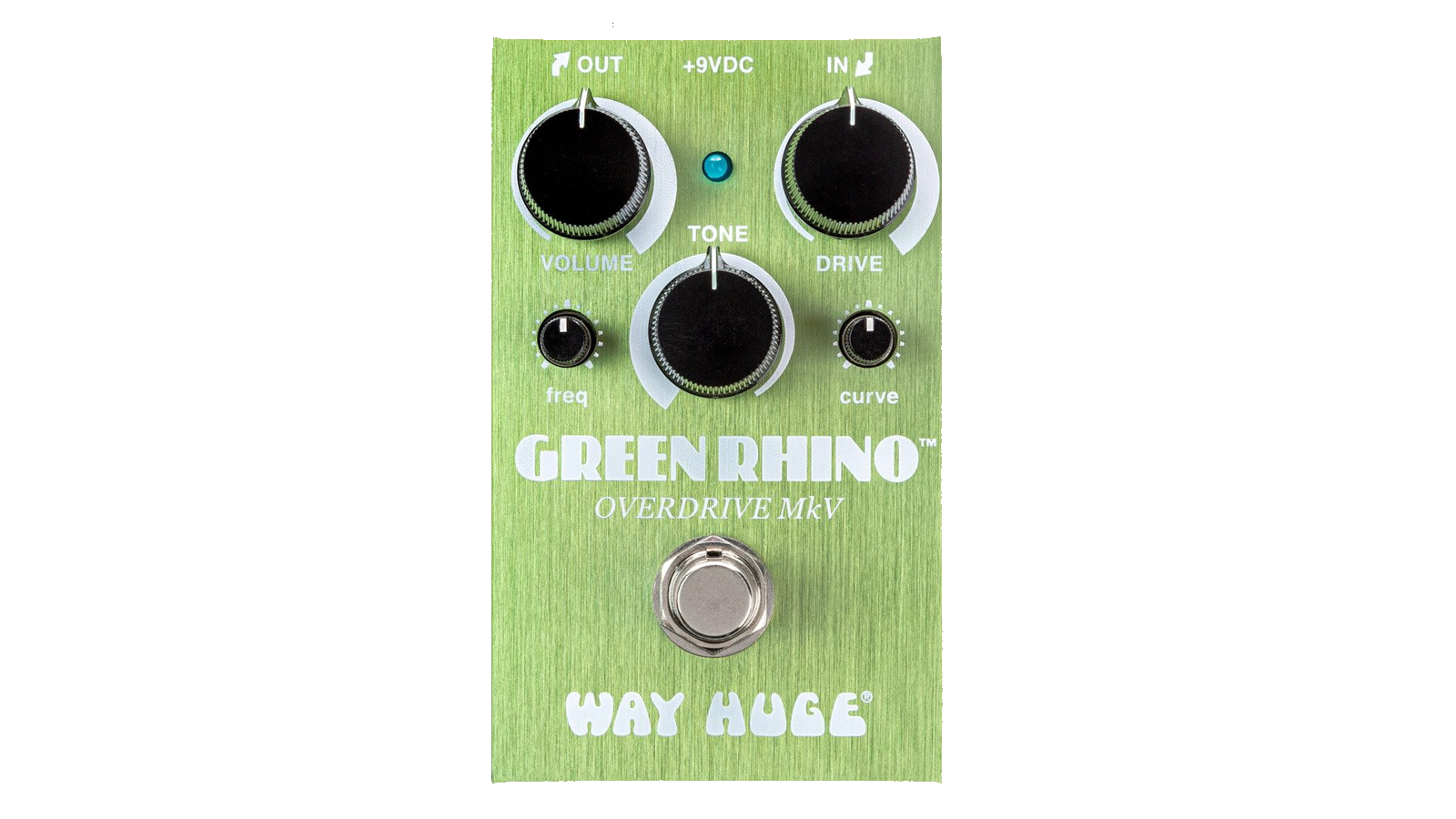
6. Way Huge Smalls Green Rhino MKV
Our expert review:
Specifications
Reasons to buy
Reasons to avoid
Way Huge pedals – especially their range of killer overdrives – have been seen on pedalboards what seems like the world over. The Green Rhino has been one of their best-selling drive pedals, with its green enclosure giving us a good idea of where it draws its tonal inspiration from – and this MKV ‘Smalls’ version channels all of that ‘screamer goodness into one small, compact and convenient box.
The Smalls Green Rhino MKV may be a little pedal, but you can rest assured that the tone it creates is pretty huge. Even with the fairly basic volume, tone and drive dials, this pedal has scope for a large array of driven tones – anywhere from slight breakup to thick high-gain. Along with these three main controls, the Smalls Green Rhino is equipped with ‘Freq’ and ‘Curve’ dials which enable even more tonal experimentation through a 100Hz or 500Hz cut and high-end roll-off respectively.
We love compact pedals here. They’re super convenient and easy to cart around, and give us extra pedalboard space – which means more pedals. One point to consider, however, is how accurate your feet are. We found that when engaging the Smalls Green Rhino – especially mid-song – it was quite easy to knock the dials on the pedal and accidentally mess with our tone. It’s something that, as a player, you’d probably get used to, but something to consider all the same.
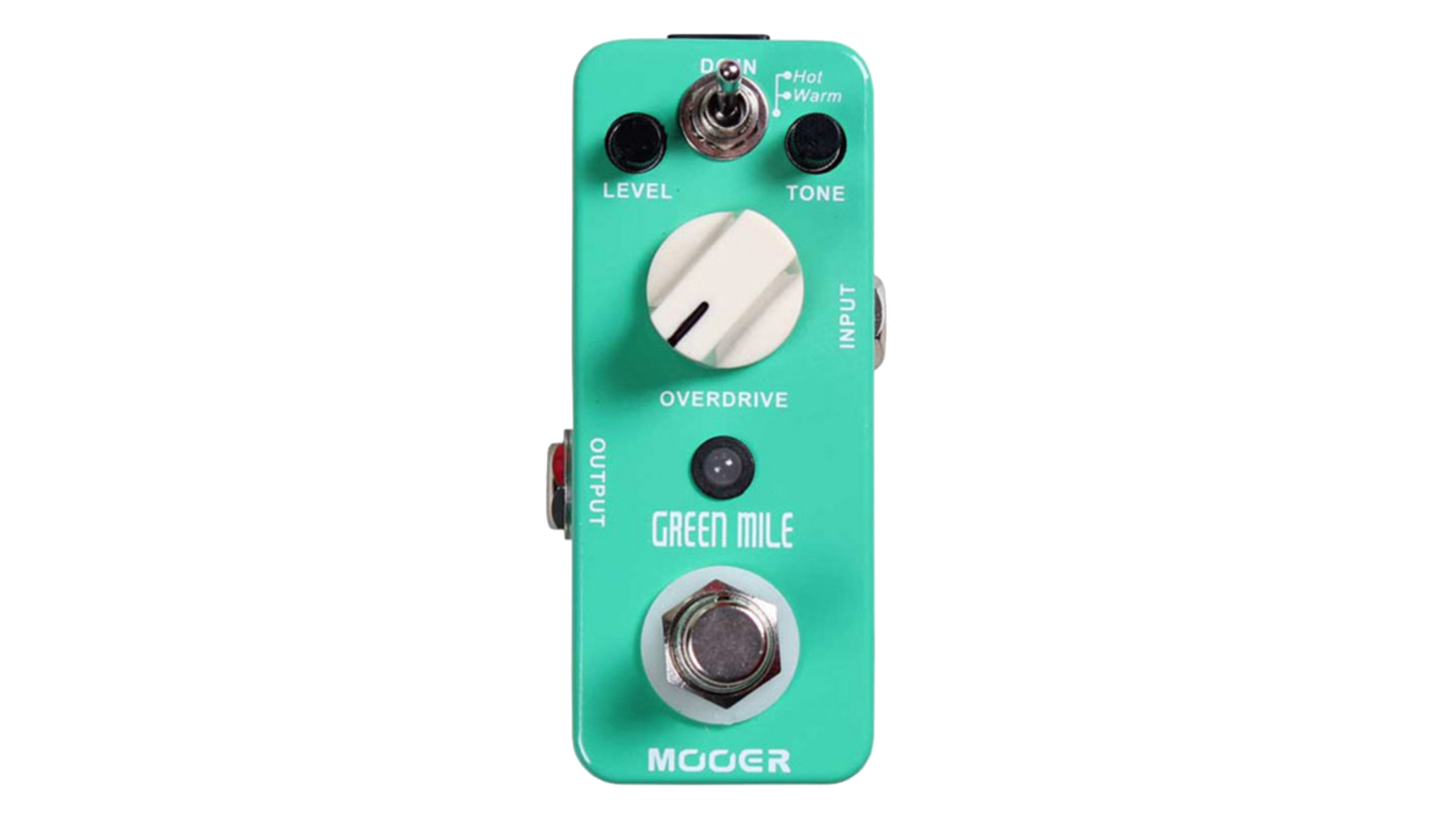
7. Mooer Green Mile
Our expert review:
Specifications
Reasons to buy
Reasons to avoid
Mooer is quickly becoming a household name in the world of guitar effects and accessories for their impressive multi-effects pedals, electric guitars and guitar amps, but their popularity first came to the fore as a result of their mini pedals – one of those being the Green Mile.
Like any green overdrive pedal you can get your hands on nowadays, its inspiration is fairly obvious – but as a result, the tones you can achieve from this unit are seriously impressive. The Green Mile has two working modes – ‘warm’ and ‘hot’ – both providing smooth, tube-esque levels of dirt. As you’d expect, ‘warm’ mode imparts a natural-sounding drive which is fairly touch-sensitive, and ‘hot’ mode takes the gain levels up a notch for more crunch.
The layout of the Green Mile is impressive when you consider its small footprint, with the large ‘overdrive’ control making tonal adjustments on the fly nice and easy. If you’re not so accurate with your feet however, you may find yourself nudging this dial when engaging or disengaging the footswitch. The lack of a battery compartment means that this pedal needs to be used with an external power supply – which isn’t included with the pedal. It’s not the end of the world though – and for this budget-friendly price, we can’t expect too much in the way of extras.
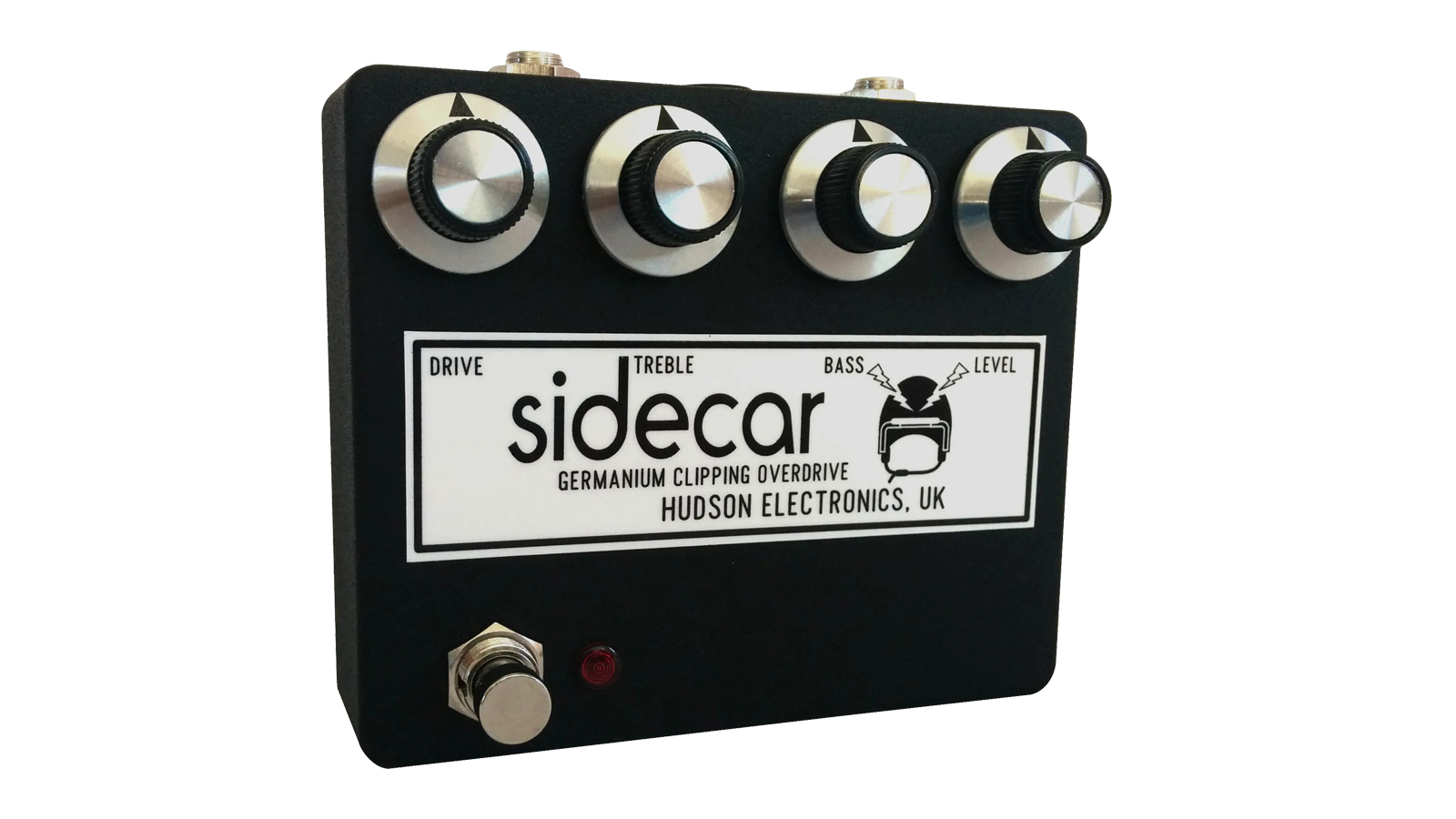
8. Hudson Sidecar
Our expert review:
Specifications
Reasons to buy
Reasons to avoid
As far as Tube Screamer clones go, the Hudson Sidecar takes care of a slightly different end of the market. The Sidecar isn’t green, and it’s got more than three knobs, for a start – but tonally, the Sidecar just does more. If you like a slightly less than traditional approach to your Tube Screamers, then the Sidecar could be for you.
Largely based on the classic TS808, the front end of the Sidecar is designed to provide a greater low-end response, a wider range of gain and a little more headroom than a standard 808 – enabling any player to achieve some pretty impressive tone-sculpting feats. There are two germanium diodes in the clipping section of the Sidecar which deliver a slightly softer response, keeping your dynamics and feel intact rather than slamming the signal with loads of dirt early on.
Having a treble and bass control alongside the drive and level dials is a lovely touch on the Sidecar, and it’s one of the things which sets this pedal apart from most 808 clones. It’s capable of anything from a clean boost and light gain to dirty, velcro-style fuzz – and that’s the main reason why we’d love one. If you’re into traditional TS clones, then we’d realistically avoid this pedal – but it’s so fun. It is a big pedal, so if pedalboard space is limited then you may struggle to fit this one on – but we feel it’s worth the hassle.
Best Tube Screamer clones: Buying advice
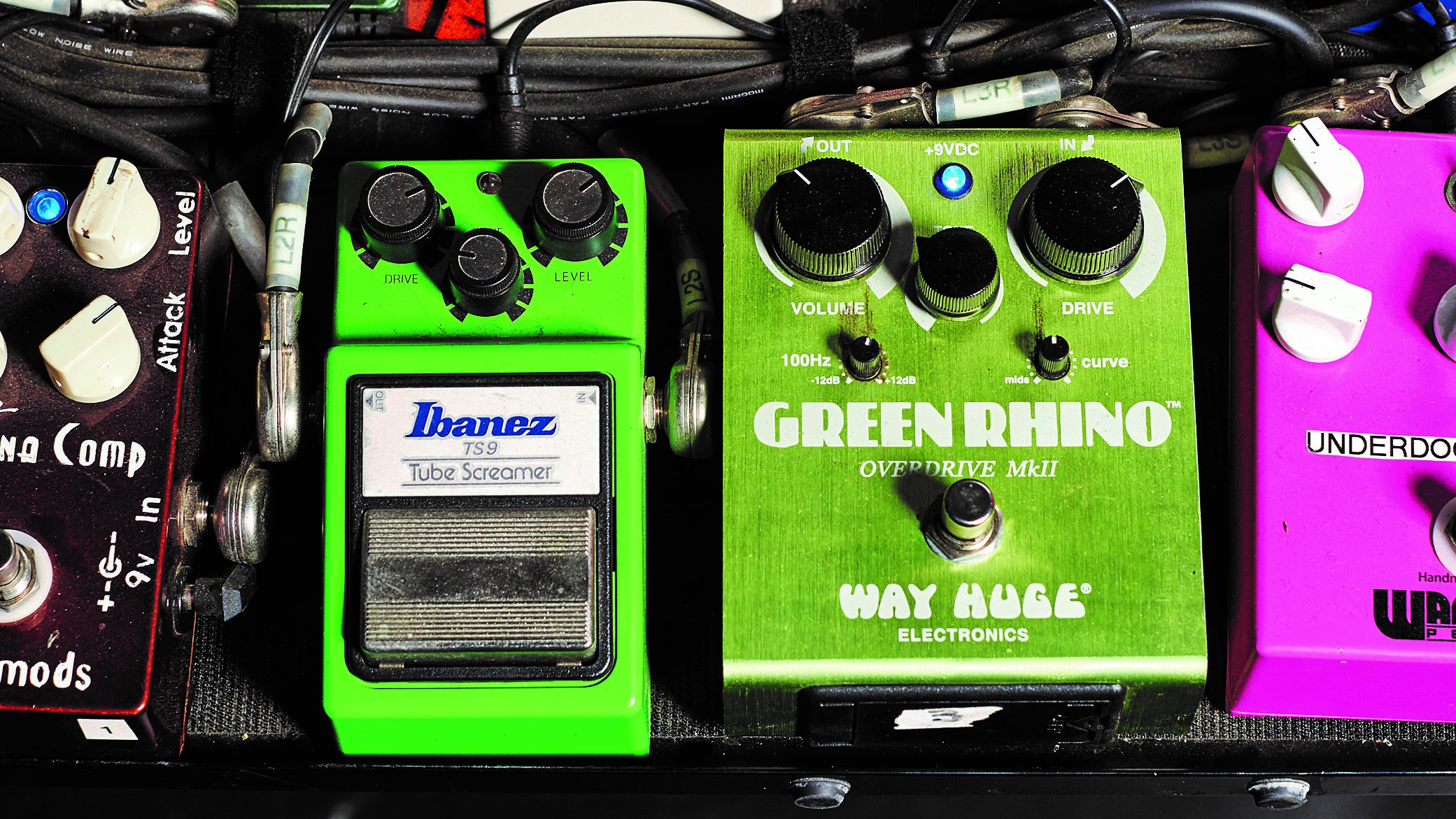
How to choose the best Tube Screamer clone
You can trust Guitar World
Let's assume it's a given that you want to buy a clone. That could be because of price, or it could be because of features not found on the original. Maybe you want authenticity, but even then a clone might be the best choice. You might assume that an Ibanez model would be the most authentic, but there are many different units. In fact, the original manufacturer on behalf of Ibanez was actually Maxon, meaning that the Maxon 'clone' is a more authentic Tube Screamer in some ways than modern non-reissue Ibanez units.
The first thing to decide on is how close you'd like the clone to be to a Tube Screamer. After all, most originals are buffered, so if you want a true bypass Tube Screamer, then an otherwise faithful clone might be your best bet. There's a broad spectrum of clones, from those that are more 'inspired' by the pedal than direct clones, to ones that are a part-perfect recreation of a particular era of the pedal. You need to decide where on this spectrum your tastes lie, and how flexible you need it to be. If in doubt, as always, let your ears be your guide.
The second thing to pick is what era of Tube Screamer interests you the most. Of course the most classic is the original, the TS-808, but some players prefer the TS-9, produced from 1981 to 1985. Fewer people are going to die on a hill for the merits of the TS-5 Soundtank or TS-7 Tone-Lok, but every iteration of the Tube Screamer has something slightly different to offer.
The third thing to choose is the tone and clipping set-up. Of course, the one thing that Tube Screamers almost universally have in common is their 'mid bump' and soft-clipping diodes.
However, especially in the clones market, even that isn't a given. The most obvious example of this is in using the pedal as a boost. Many metal players use the Tube Screamer with the gain down and level up to kick a high-gain amp into further saturation. As a result, a common option added to clones is the option to remove the clipping diodes from the circuit entirely. This leaves the pedal as a characterful boost and EQ-shaper.
What styles do I play?
The style of music you play will have a huge influence on the type of Tube Screamer clone you buy. The amounts of gain, tonal control, and voicing of your new pedal will need to be taken into account, as well as whether you'll be using it as a clean boost or not.
Do you need to use a lot of gain? Something like the EDQ Plumes might be more suitable than a Mooer. Do you want loads of tonal variation? The JHS Bonsai's 9-in-1 qualities make it a versatile beast. Will you be going into a dirty amp? Something like the traditionally-voiced Maxon OD-808 will suit well.
While all of these pedals are great, they all have different qualities which make some more suitable than others.
Do I want something traditional or modern?
Another thing to consider is whether you'd like a more traditional pedal over something more modern-sounding, or vice versa.
Traditionally-voiced pedals will get you closer to that old-school TS tone that Stevie Ray Vaughan and The Edge made so famous, whereas the more modern voicings of some pedals may take you down the higher-gain route.
The Tube Screamer circuit can definitely do gain at both ends of the scale, but pedals such as the JHS Bonsai and Hudson Sidecar excel in the high-gain arena. If vintage-voicing is where you're at, then having a go on the EHX East River Drive should be on your agenda.
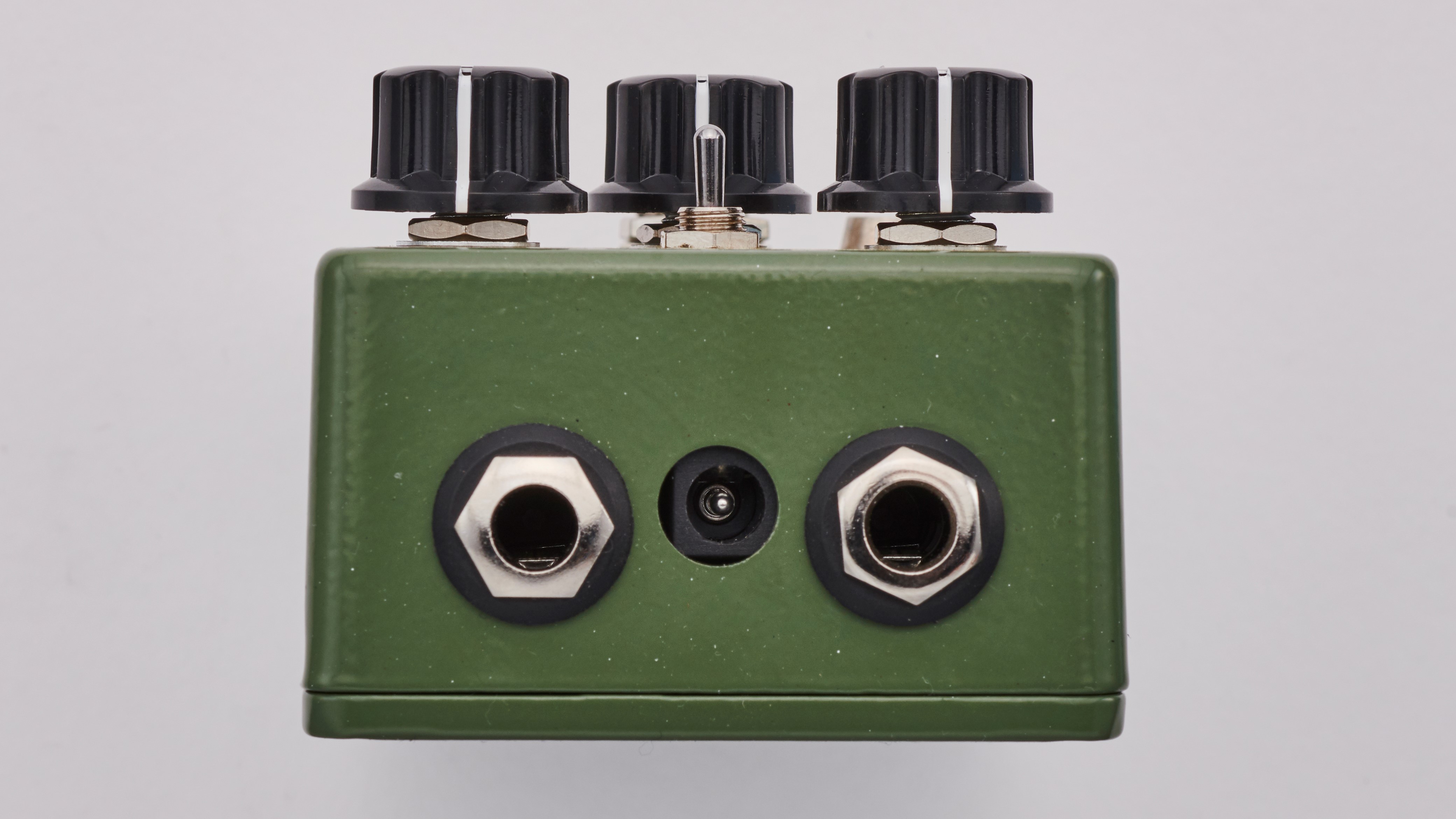
Why should I buy a clone over a regular Tube Screamer?
Why should you buy a clone over the real thing? The Ibanez Tube Screamer is an iconic pedal, and the sound it produces is better than any imitation, right? It's a good question, and one where the answer is different for everyone.
There are so many factors that come into play when you decide to buy a clone over the original pedal.
The price is always a huge sticking point when buying a pedal 'clone' over the original. The original Ibanez TS9 costs over a hundred bucks, and the TS808 is even more expensive – so realistically, getting hold of a clone can be much much cheaper without you having to make any tonal sacrifices. Pedals like the Mooer Green Mile and EHX East River Drive offer a pretty accurate recreation of the Tube Screamer tone for considerably less than the original.
The brand might also play a part in your decision to buy a clone over an original. Us guitarists can be an odd bunch, and one of our many quirks is that we form strong and strict loyalties to certain brands that we like. If you want to spend a load of your hard-earned cash on an TS-style overdrive pedal, but don't really like the Ibanez brand, then a clone is the perfect option.
The tone is another potential reason as to why a clone would suit you better than the original pedal. If you're all about the mid-bump and Tube Screamer style of overdrive, but want something that has more gain, a slightly different gain voicing or just more tweakable options, then a clone is probably the way to go. Remember though, that all Tube Screamer clones will have a fairly similar tone, layout and gain structure, as they're all variations on the same theme.
Which brands make the best Tube Screamer clones?
The Tube Screamer clone market is, to put it modestly, going nuts right now. There are brands from all corners of the earth throwing their hats in the TS-inspired pedal ring – but some of these brands are more successful than others.
If you're looking for the closest thing to the original, then – ignoring Ibanez themselves – Maxon is your obvious choice. Back in the late '70s when the Tube Screamer first came out, the pedals were being made by Ibanez's parent company, Nisshin. They made pedals with Ibanez branding, and then decided that they would release their own version of the exact same pedal under the name Maxon. People argue that the Maxon isn't technically a clone for this reason, but as it doesn't have Ibanez written on it, it's in our guide. Electro-Harmonix also makes a killer vintage-voiced TS clone in the East River Drive, and the Mooer Green Mile delivers simple, mid-heavy gain to any pedalboard in a nice compact package.
If you're searching for a modern take on the Tube Screamer, then there are literally thousands of brands all making cool modern-voiced pedals. JHS and EarthQuaker Devices are two of the most popular, and their TS-inspired pedals don't leave much to be desired. They can cover virtually all bases, especially when it comes to modernizing that Tube Screamer tone we love.
Hudson Electronics, while not the most well-known pedal brand on our list, make some super-cool vintage-sounding pedals – especially the Sidecar. It's hard to get hold of the exclusive Sidecar, but if you can, the tones are truly impressive. Think swampy, dirty, bluesy, fuzzy, bright, open-sounding and precise sounds all in one pedal.
Which Ibanez Tube Screamer models are available today?
For those who can't get enough of the original Ibanez Tube Screamer, there are multiple options at different price points that you can get your hands on today.
For those who want only the very best overdrive tones emanating from their 'board, Ibanez has produced (and continues to produce) hand-wired versions of the TS808. The limited edition Ibanez TS808HW – whilst also acting as an investment for players who want to see their money put to good use – provides an impressive tone which delivers on all of the TS808-sounding promises. Whether it sounds that much better we'll never know – but it's worth getting hold of one if your bank account will allow.
If having a pedal as an investment is pushing it too far, then the regular, off-the-shelf Ibanez TS808 will satiate all your Ibanez Tube Screamer needs. Based on the late '70s original, the TS808 brings smooth, sweet and sophisticated overdrive to the party – although it'll set you back the best part of 200 bucks.
For anyone who likes the Tube Screamer vibe but wants something a little more aggressive-sounding, then the Ibanez TS9 is just the ticket. While following many of the TS808's tonal cues, the TS9 provides even more of an upper-mid and treble boost, making it a great pedal option for those whose tones are on the more aggressive end of the spectrum.
Want a teeny tiny tone machine? The Ibanez Tube Screamer Mini is a great choice for those who're either crafting tones on a budget, or those who have limited space on their pedalboards. The Mini has the same features as the standard TS808 so you needn't sacrifice on tone, either. For under $80, you can get true Ibanez tone without draining your bank account.
How we choose products
At Guitar World, our team of seasoned musicians has extensive experience playing and testing various guitar products, including boatloads of Tube Screamer clones. As passionate guitar enthusiasts, we understand the importance of achieving the right sound and tone, so we draw on our knowledge gained from using these products in live performances, studio recordings, and rehearsals to identify the best products for our guides.
To create our list of top Tube Screamer clones, we use a combination of practical experience, user reviews, and in-depth discussions with our editorial team to reach a consensus. We evaluate factors such as pricing, features, ease of use, and durability to ensure that we showcase the best products currently available.
As guitar players ourselves, we appreciate the value of having the right equipment to deliver a memorable performance. Thus, we are committed to providing reliable and knowledgeable recommendations to help guitar players find the perfect Tube Screamer clone to suit their specific needs and preferences. Our ultimate aim is to empower guitar players to unlock their full potential with the best products on the market.
Find out more about how we make our recommendations and how we test each of the products in our buyer's guides.
Related buying guides
- Love a good clone? These are the best Klon clones
- Pair your TS clone with the best multi-effects pedals
- Getcha wobble on with the best chorus pedals
- Sound epic with the best reverb pedals
- Turn up the gain with the best distortion pedals
- Without one of the best guitar tuners, you'll probably sound bad
- Discover a pedal legend with the best Electro-Harmonix pedals
Get The Pick Newsletter
All the latest guitar news, interviews, lessons, reviews, deals and more, direct to your inbox!
James is a freelance writer and former Junior Deals Writer at Guitar World. Before writing, James worked as a guitar salesman at a local music store, so he knows a thing or two about matching people with their perfect instruments. James also has experience working in other areas of the music trade, having briefly worked for online music distributor, RouteNote. James is a guitarist, bassist and drummer and has also toured the UK and Europe with his old band Hypophora.
“The original Jordan Boss Tone was probably used by four out of five garage bands in the late ’60s”: Unpacking the gnarly magic of the Jordan Boss Tone – an actual guitar plug-in that delivers Dan Auerbach-approved fuzz
“This is a powerhouse of a stompbox that manages to keep things simple while offering endless inspiration”: Strymon EC-1 Single Head dTape Echo pedal review

